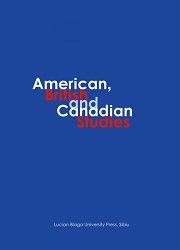“In came the self-evident and luminous little mess”: Ethical Life Writing in Muriel Spark’s Loitering with Intenti
“In came the self-evident and luminous little mess”: Ethical Life Writing in Muriel Spark’s Loitering with Intenti
Author(s): Petronia Popa-PetrarSubject(s): Studies of Literature, Aesthetics, Theory of Literature
Published by: Editura Universitatii LUCIAN BLAGA din Sibiu
Keywords: Scottish fiction; Muriel Spark; narrative ethics; life writing; alterity; biography; autobiography; authorial responsibility;
Summary/Abstract: Starting from a brief examination of Muriel Spark’s position as a Scottish novelist within the framework of her anti-essentialist, anti-authoritative aesthetics, my essay will take a seemingly abrupt, but in fact consequential turn to investigate the complex antinomies involved in her fictional representation of the lives of others. Although at home and abroad she is hailed as Scotland’s most celebrated author of the twentieth century, Spark’s writerly practice consists of regularly dismantling grand narratives or fixed, stable identities, often clashing with more localized or prescriptive views on the social and national functions of narrative. My argument, however, is that it is the very unease of her “Scottishness” that acts as one of the foundations of her literary ethics, embodied in her acute awareness of the antinomies involved in textualizing the lives of others. Spark’s shrewdly metafictional Loitering with Intent (1981) openly thematizes both the obligation, and the risks of telling one’s own and other people’s stories, performing a radical ethics of narrative alterity through its staging of the enmeshments of writing, (auto)biography and experience.
Journal: American, British and Canadian Studies
- Issue Year: 2021
- Issue No: 37
- Page Range: 48-66
- Page Count: 19
- Language: English
- Content File-PDF

